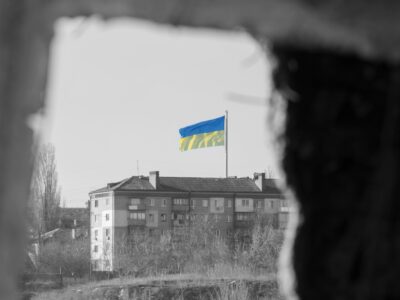New Report: How to Wind Down the War on Terror
FOR IMMEDIATE RELEASE
CONTACT: Jessica Rosenblum, Quincy Institute, 202.800.4662/ [email protected]
NEW REPORT: HOW TO WIND DOWN THE WAR ON TERROR
WASHINGTON, DC — The United States’ prosecution of the Global War on Terror needs to adapt to fundamental changes in the nature of the terrorist threat to the American homeland, according to a new report that puts forward an alternative counterterrorism (CT) strategy, which offers more effective results at lower risk and a road map to ultimately end the 19-year-old war.
The report — “19 Years Later”: How to Wind Down the War on Terror” — released today by the Quincy Institute for Responsible Statecraft, proposes to reduce the scope and intensity of U.S. CT operations and to increase congressional oversight, while retaining the capacity for self-defense, particularly in the Middle East/North Africa region. The paper is written by QI Senior Analyst Steven Simon and Richard Sokolsky, a non-resident senior fellow at the Carnegie Endowment for International Peace.
“The COVID-19 crisis shows the importance of reassessing the security threat to America and Americans; this is true of terrorism as well and the need to fundamentally reassess the costs, risks and consequences of maintaining our current CT strategy, ”says Simon.
“In some ways, we’ve put America’s CT strategy on auto-pilot, overlooking shifts in the who, why and how of terrorism,” Simon adds.
While recognizing that the threat of attack against the homeland, American citizens abroad, and U.S. troops in the region can never be brought down to zero, the report finds that the jihadist terrorist threat to the United States has greatly diminished over the past 19 years. This is due, in part, to a shift in the strategy of jihadist armed groups away from attacking the United States itself and American targets and towards waging war within weak regional states for the purpose of acquiring territory and political control.
Reflecting this trend, the jihadist track record of attacks against the U.S. homeland since 9/11 has been unimpressive. These groups succeeded only once in infiltrating the United States to carry out a deadly attack in the past 19 years. This breach occurred in December 2019, when a Saudi aviation student deployed by the Saudi Air Force to a U.S. naval air station in Pensacola, Florida murdered three U.S. sailors. This attack is remarkable not only because it is the only one in the continental U.S., but also because the perpetrator entered the U.S. due to the U.S. military-to-military partnership with Saudi Arabia.
In assessing the impact of the four different lines of effort used by the U.S. for CT operations — targeted strikes by drones or by special forces; counterinsurgency operations aimed at seizing and controlling territory; attempts to strengthen the capability of local forces; and homeland security operations — the report finds that the last approach has provided underappreciated advantages.
“Our overseas military commitments are way out of proportion to any damage that terrorists can inflict on America and Americans,” says Sokolsky, “It’s been investments in intelligence gathering, international cooperation, dogged police work, and vigilance that have prevented attacks on the homeland,” he adds.
Conversely, the authors argue, efforts to combat terrorism abroad have proved not just unsuccessful, but actually counterproductive to the degree that they radicalize the local populations, confirm the jihadist narrative of foreign occupation, put American troops at greater risk of terrorist attacks, inflame civil conflict, and contribute to the dysfunctions of the host governments.
One of the obstacles to a reassessment of the United States’ CT strategy to date has been a lack of political will. Fear of the electoral impact of a terrorist attack occurring on their watch has constrained presidents’ and politicians’ appetite for reform.
“In addition to operational factors that make it hard to wind down overseas military CT operations, it is also politically safer to stay the course irrespective of the actual effect of the War on Terror on the safety of Americans at home,” says Simon.
“The challenge the coronavirus pandemic has posed to conventional thinking on what constitutes a security threat may yet create a political opening for the reckoning we need to bring the United States CT strategy in line with our national interests,” says Sokolsky.
###

